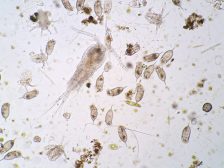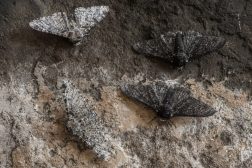peptone
(Science: physiology) The soluble and diffusible substance or substances into which albuminous portions of the food are transformed by the action of the gastric and pancreatic juices. Peptones are also formed from albuminous matter by the action of boiling water and boiling dilute acids.
Collectively, in a broader sense, all the products resulting from the solution of albuminous matter in either gastric or pancreatic juice. In this case, however, intermediate products (albumose bodies), such as antialbumose, hemialbumose, etc, are mixed with the true peptones. Also termed albuminose.
pure peptones are of three kinds, amphopeptone, antipeptone, and hemipeptone, and, unlike the albumose bodies, are not precipitated by saturating their solutions with ammonium sulphate.
Origin: Gr. Cooked.
Dictionary > Peptone
You will also like...

Lights’ Effect on Growth
This tutorial elaborates on the effect of light on plant growth. It describes how different plants require different amo..

Leaves
Leaves are the major photosynthetic organ of a plant. Apart from that, they are also crucial to water movement. In this ..

Freshwater Communities & Plankton
Planktons are microscopic organisms that live suspended in aquatic habitats. There are two groups: the phytoplanktons an..

Examples of Natural Selection
Darwin's Finches are an example of natural selection in action. They are an excellent example of the way species' gene p..

Chemical Composition of the Body
The body is comprised of different elements with hydrogen, oxygen, carbon, and nitrogen as the major four. This tutorial..

Abiotic and Biotic Factors
This tutorial deals with the abiotic factors of the freshwater environment that determine what sort of life would be sui..

